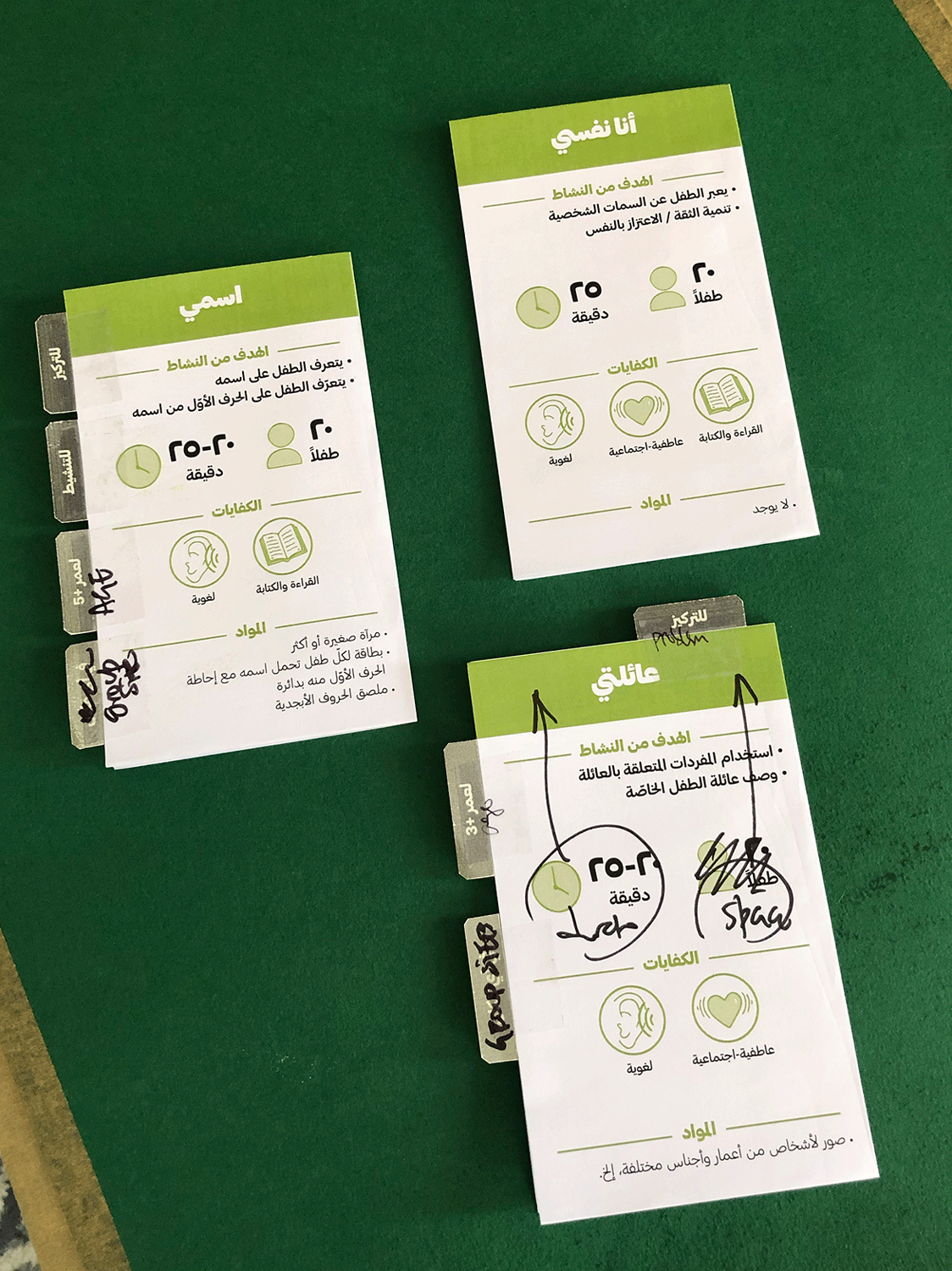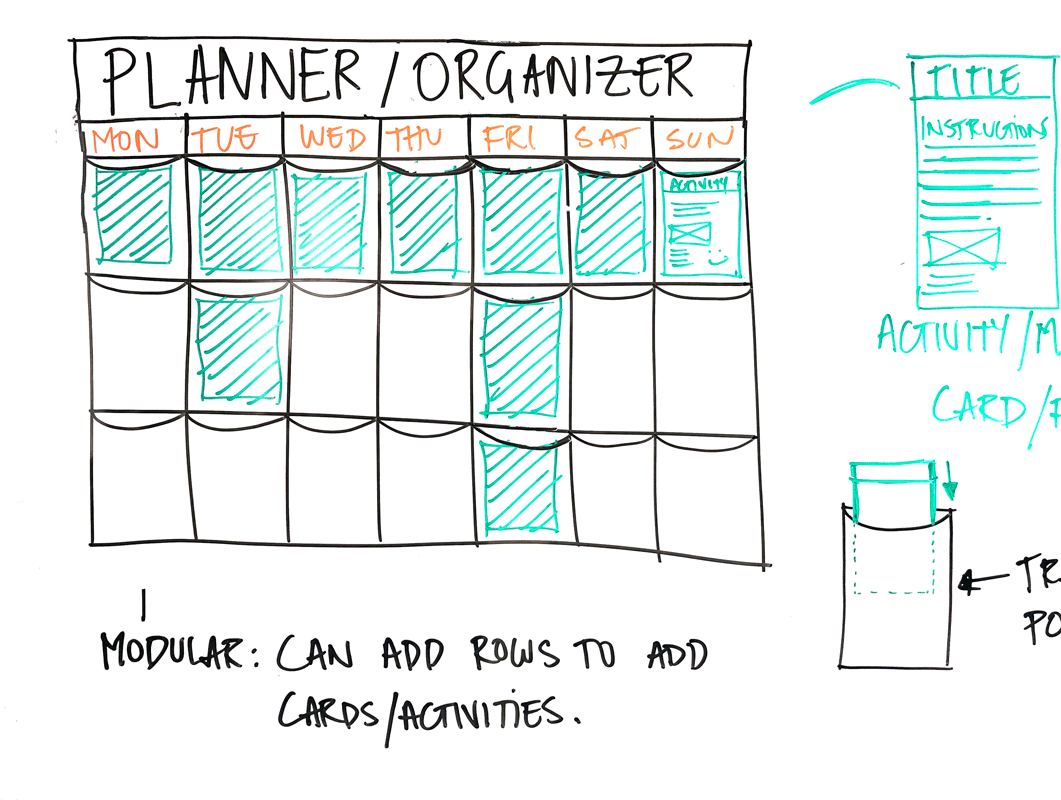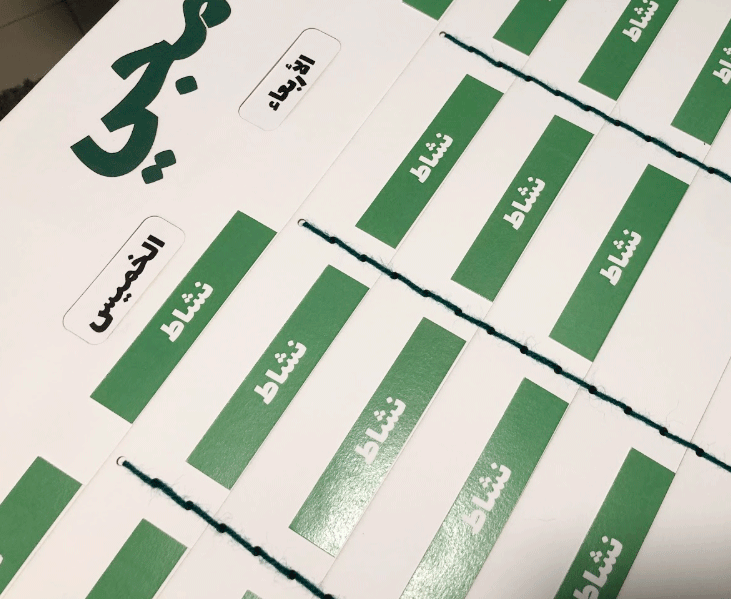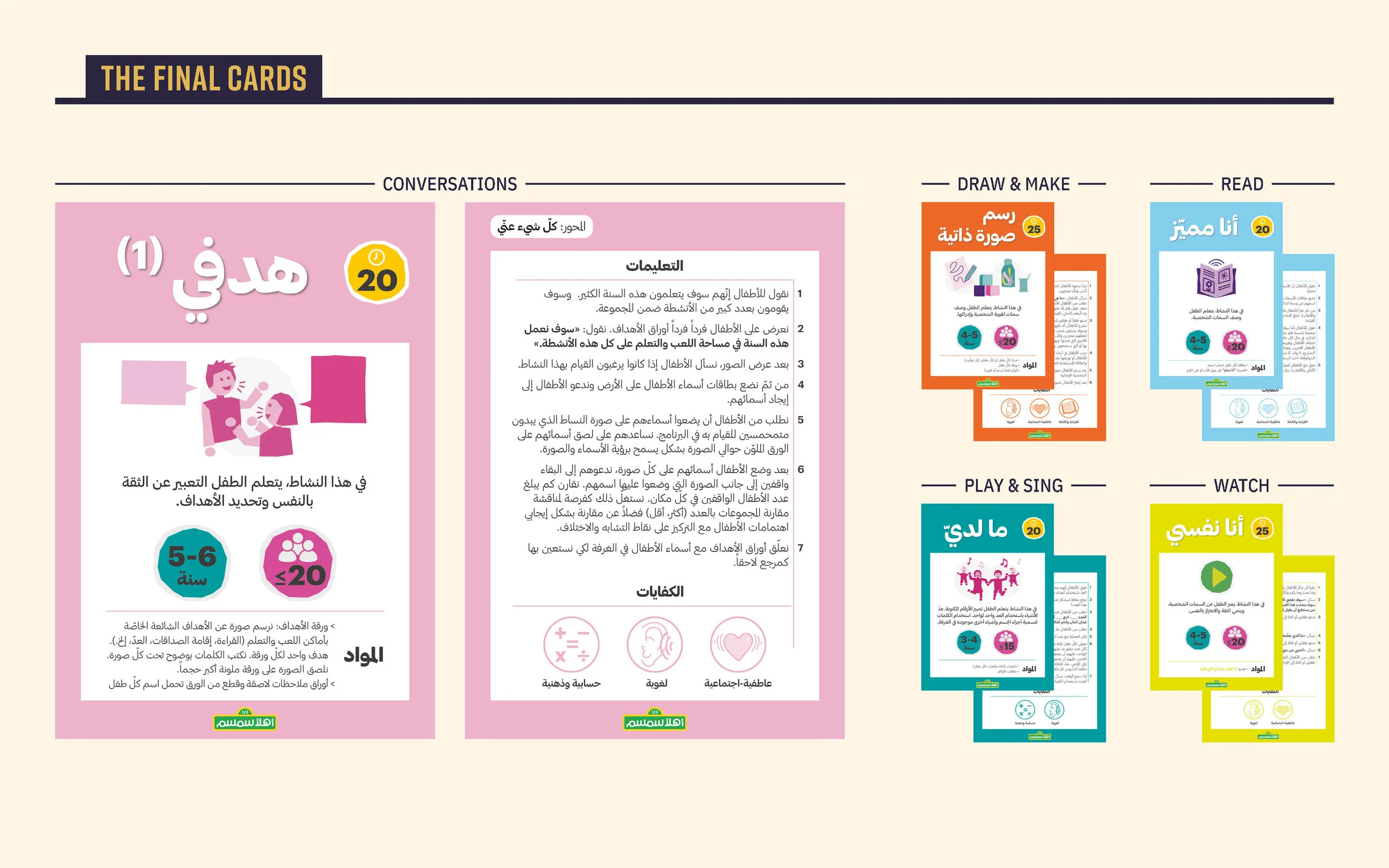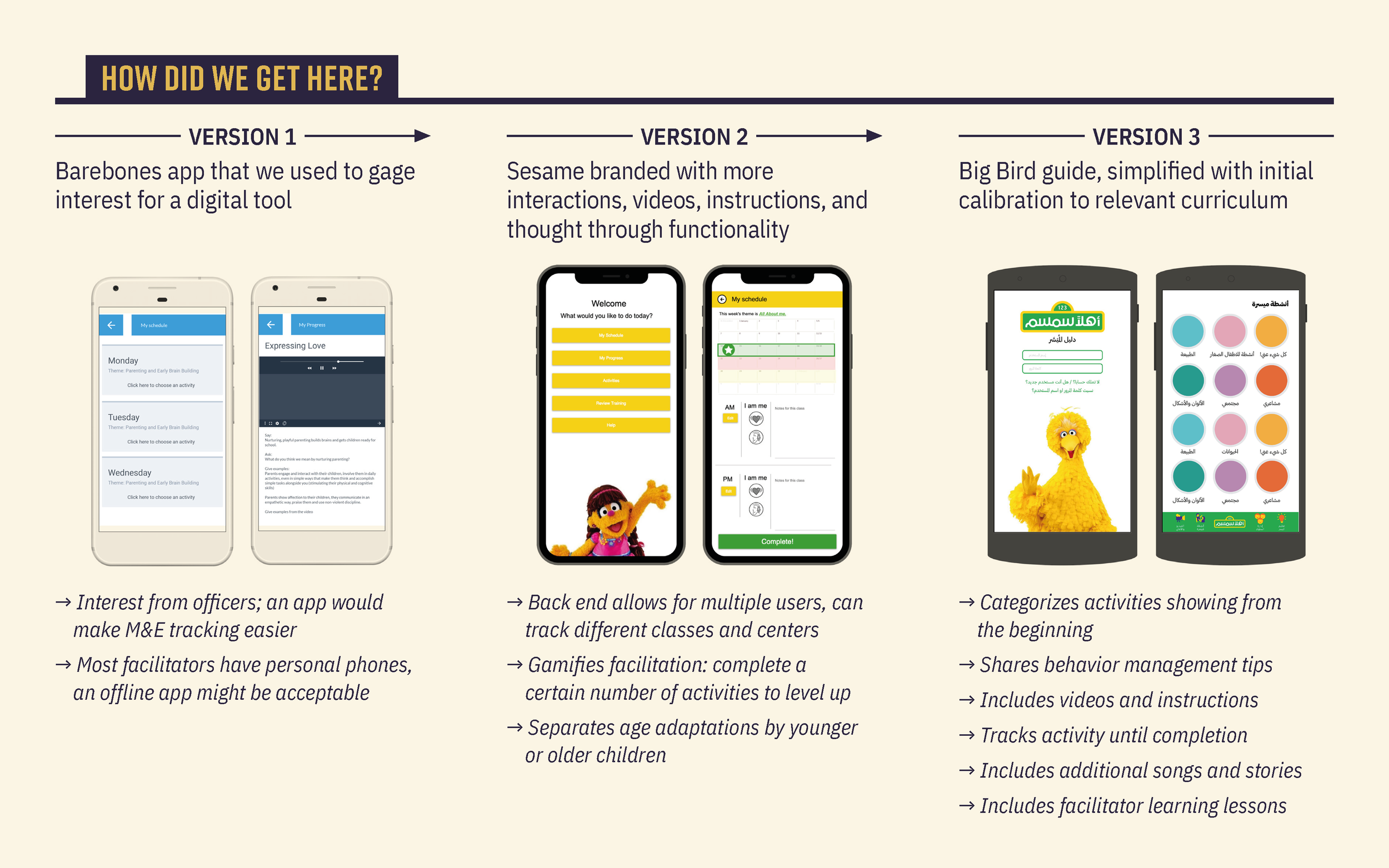AHLAN SIMSIM
DELIVERY mechanisms for educational content
Organization: International Rescue Committee
Role: Human-Centered Designer
OVERVIEW
This project aimed to give facilitators and caregivers the opportunity to learn and practice new Early Childhood Development (ECD) activities developed by the International Rescue Committee (IRC) and Sesame Workshop. As a design consultant, I conducted user research, prototyping, and user testing, while also contextualizing the content within the Arab region. This project drew on behavioral insights in order to encourage best practices ECD.
THE PROCESS
Our initial interviews with and observations of facilitators, caregivers, and children helped us understand various behavioral barriers that were getting in the way of our users using content and activities from the new curriculum. For example, when it comes to the facilitators’ barriers, we realized that the introduction of new content should be at a time when users have mental bandwidth. Because this new content included many options that were not adequately organized, facilitators and caregivers experienced a paralyzing choice overload.
Once we understood these barriers we prioritized design ideas that addressed them and prototyped early drafts (i.e. sacrificial prototypes) to test our design assumptions and get feedback. This step shed light on design elements that would make our interventions and designed experiences useful and appealing to our users, but also replicable. The team and I then developed, tested, and iterated three types of interventions: facilitator-facing flashcards and a mobile application; caregiver-facing podcast series and a different set of flashcards; and child-facing worksheets and games. This suite of products and solutions work closely together to ensure an efficient delivery of the ECD content. We conducted 16 in-depth interviews, 12 digital app walkthroughs and user testing, 7 co-creative sessions, and 14 observations.
The facilitator facing mobile app is currently under development and is scheduled to launch in Q3 of 2021.
MAIN TAKEAWAYS
This project highlights the need to contextualize the tools and channels we use to deliver information. Many of the centers we were working in were in remote parts of Lebanon, where internet access was limited and sometimes even non existent. This project also sheds light on the challenges of bringing a curriculum that was intended to be universal to a very specific time and place. This required a broader view of user experience that relies heavily on local customs, traditions, and language.

